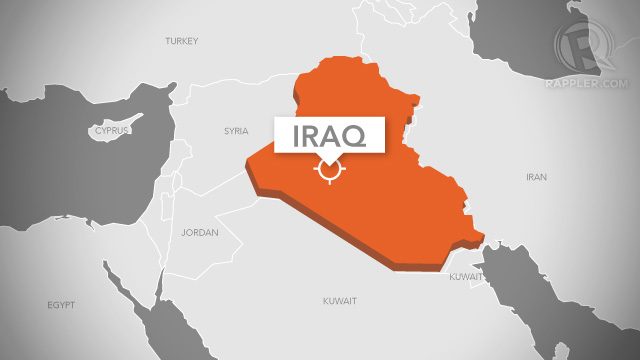SUMMARY
This is AI generated summarization, which may have errors. For context, always refer to the full article.

BAGHDAD, Iraq (UPDATED) – Kurdish politician Fuad Masum became the new president of Iraq Thursday, July 24, in a step towards forming a new government that visiting UN chief Ban Ki-moon said must be inclusive for the country to survive.
A June onslaught on Sunni Arab areas north and west of of Baghdad led by the jihadist Islamic State group has brought Iraq to the brink of breakup, with the government struggling to assert any authority beyond its Shiite power base.
Parliament elected Masum, who served as the first prime minister of Iraq’s autonomous Kurdish region more than two decades ago, by an overwhelming majority of 211 votes to 17.
He had been almost guaranteed the job after Kurdish parties struck a late-night deal to support him.
Under an unofficial power-sharing deal, Iraq’s Kurds traditionally get the post of president.
The move could pave the way for a deal on the much more powerful post of prime minister.
The UN chief met current Prime Minister Nuri al-Maliki and stressed the need for a broad-based government to be formed as soon as possible to save the country from collapse.
“Iraq is facing an existential threat but it can be overcome by the formation of a thoroughly inclusive government,” he said at a joint news conference with Maliki.
“It is critical that all political leaders fulfill their responsibilities to ensure that the government formation process falls within the constitutional timetable,” he said.
The Shiite premier has accused mainstream politicians from the Sunni Arab minority of condoning the IS offensive and of “dancing in the blood” of the onslaught’s victims.
But many retort it was Maliki’s own brand of sectarian politics that brought the country to the brink of collapse, and he now faces intense domestic and foreign pressure to step aside.
He was also criticized over the army’s poor performance in the face of the lightning offensive launched in second city Mosul on June 9.
Prison convoy attacked
Insurgents launched a spectacular pre-dawn assault Thursday on a convoy transferring inmates convicted of terrorism charges in Taji, only 25 kilometers (15 miles) north of Baghdad.
According to police and medical sources, at least 60 people died in the attack, which saw militants ram a security convoy with a suicide car bomb before detonating other bombs and raking it with gunfire.
Nearly all of the 60 prisoners believed to be on the bus died.
It was not immediately clear how many attackers died nor how the prisoners they were apparently trying to free were killed.
Human rights watchdogs have accused retreating Iraqi troops of having executed more than 250 prisoners since June 9 in an apparent bid to prevent them from joining the ranks of advancing IS fighters.
But Ban’s speech focused on Iraq’s “struggle against terrorism” and condemned the IS offensive, which has forced more than 600,000 people from their homes in a matter of weeks.
The past week saw IS spark a new international outcry with an ultimatum that purged Mosul of its centuries-old Christian community.
Despite the billions of dollars spent on training and equipment by the United States during its eight-year occupation, Iraq’s million-strong army completely folded when the insurgents attacked last month.
They have since received the support of thousands of Shiite volunteers and some foreign military assistance but the government has so far proved unable to claw back any lost ground.
Maliki has complained the world is not doing enough to help him tackle IS, an Al-Qaeda offshoot which appears to be outgrowing the network founded by Osama bin Laden.
As the premier met the head of the US Central Command, General Lloyd Austin, in Baghdad Thursday, his defense minister was in Moscow with a wish list of military equipment. – Rappler.com
Add a comment
How does this make you feel?
There are no comments yet. Add your comment to start the conversation.